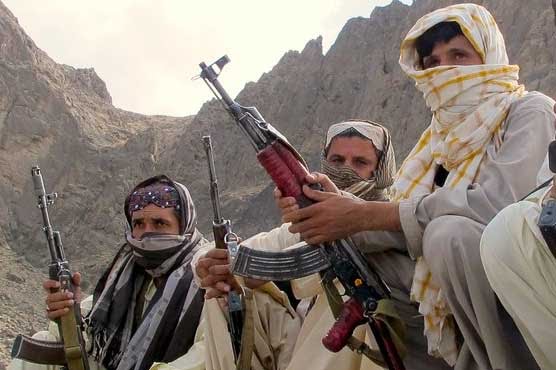After a string of attacks by the Pakistan Taliban in bordering province of Khyber Pakhtunkhwa (KP) followed by a deadly suicide bombing in capital Islamabad, Baloch separatists have now unleashed a blitz of strikes against the security forces.
The seemingly coordinated attacks, at least in terms of timing, if not operations, has triggered speculation that the Pakistan Taliban, formally called Tehreek-e-Taliban Pakistan (TTP), have begun to work together against the Pakistani state.
“… an equally troubling aspect that has emerged from the recent incidents is the possibility of TTP and Baloch militants working together. There have been such reports in social and mainstream media, although nothing conclusive has emerged,” wrote the Pakistani daily Dawn.
Alarm bells are ringing loudly in Islamabad, especially in Rawalpindi, the General Headquarters of the Pakistan military, at the possibility of the Baloch and the Pashtun insurgents, dominant in Khyber Pakhtunkhwa coming together.
Though the TTP has demanded a loosely controlled KP where its insurgents can roam free, there is strong sentiment among Pashtuns—the largest majority ethnic group in neighbouring Afghanistan—of changing the established Durand line border with Pakistan and carving out a new border uniting all Pashtuns.
The North and South Waziristan districts of KP share a border with Afghanistan. A triangulation of Afghanistan, which can provide a rear base, for joint forays by the Balochs and the Pashtuns is Pakistan’s ultimate nightmare. Pashtuns are the second largest ethnic group in Pakistan.
Pakistan’s fears are not entirely far-fetched. After a string of attacks in KP, including the takeover of a Counter Terrorism Department (CDT) facility in Bannu district on December 18, the TTP has claimed that a group of fighters from Makran, Balochistan have joined the group. TTP announced that a militant group led by Mazar Baloch from Balochistan’s Makran division has joined the outfit.
Tehreek-e-Taliban Pakistan (TTP) announced a militant group led by Mazar Baloch from Balochistan’s Makran division, a hotbed of Baloch separatist insurgency, has joined TTP. It is an important development. pic.twitter.com/hvW2NG3O2R
— Zia Ur Rehman (@zalmayzia) December 23, 2022
On Sunday the Balochistan Liberation Army (BLA) claimed responsibility for killing five army troops, including a captain, in an IED blast in Kohlu district’s Kahan area.
In Zhob, another soldier was killed, while attacks in Quetta, Hub and Kalat injured security personnel and civilians.
Much to Pakistan’s discomfiture, the Baloch armed attacks have also begun to infect the civil disobedience movement in Gwadar against projects driven by the China Pakistan Economic Corridor (CPEC). In response to an attack claimed by the BLA on a checkpoint in the Tejaban area of Kech district, Pakistani troops fired indiscriminately. One of the mortar shells that was launched injured a woman, triggering a fresh protest that blocked the CPEC route. The CPEC, which aims to connect China to the Arabian Sea, starts from Gwadar on the Pakistani coast and end northwards in Kashgar in China’s Xinjiang region.
The latest protest adds to the nearly two-month long on-going agitation by the Haq Do Tehreek (Gwadar Rights Movement). These sit-ins are being staged outside the main entrance to the port. Led by Maulana Hidayat- ur- Rehman, the demonstrators have blocked the Gwadar East Bay Expressway, the main artery that connects the port with Pakistan’s main highway network.
https://twitter.com/FrontalForce/status/1607963293288910849?s=20&t=GrsGIzkedSc_DCuEWjvxWA
Protests have also been launched outside the under-construction New Gwadar International Airport.
Protestors in Pakistan blocked coastal highway near Gwadar’s Sarbandan in Balochistan after police arrested seven ‘Haq do Tehreek’ supporters, incl their leader Hussain Wadala.
Pak evil forces trying to muzzle every voice exposing Pak-China hooliganism!!@kakar_harsha @InsightGL pic.twitter.com/Wp0RbCJFSm
— Komal Mahajan (@KomalMahajan_) December 28, 2022
So far being staged on separate tracks, the latest Pakistani attack at Tejaban may have seeded the militant movement into the civil disobedience agitation, with the Pakistani military, the common target energising the fusion.




















